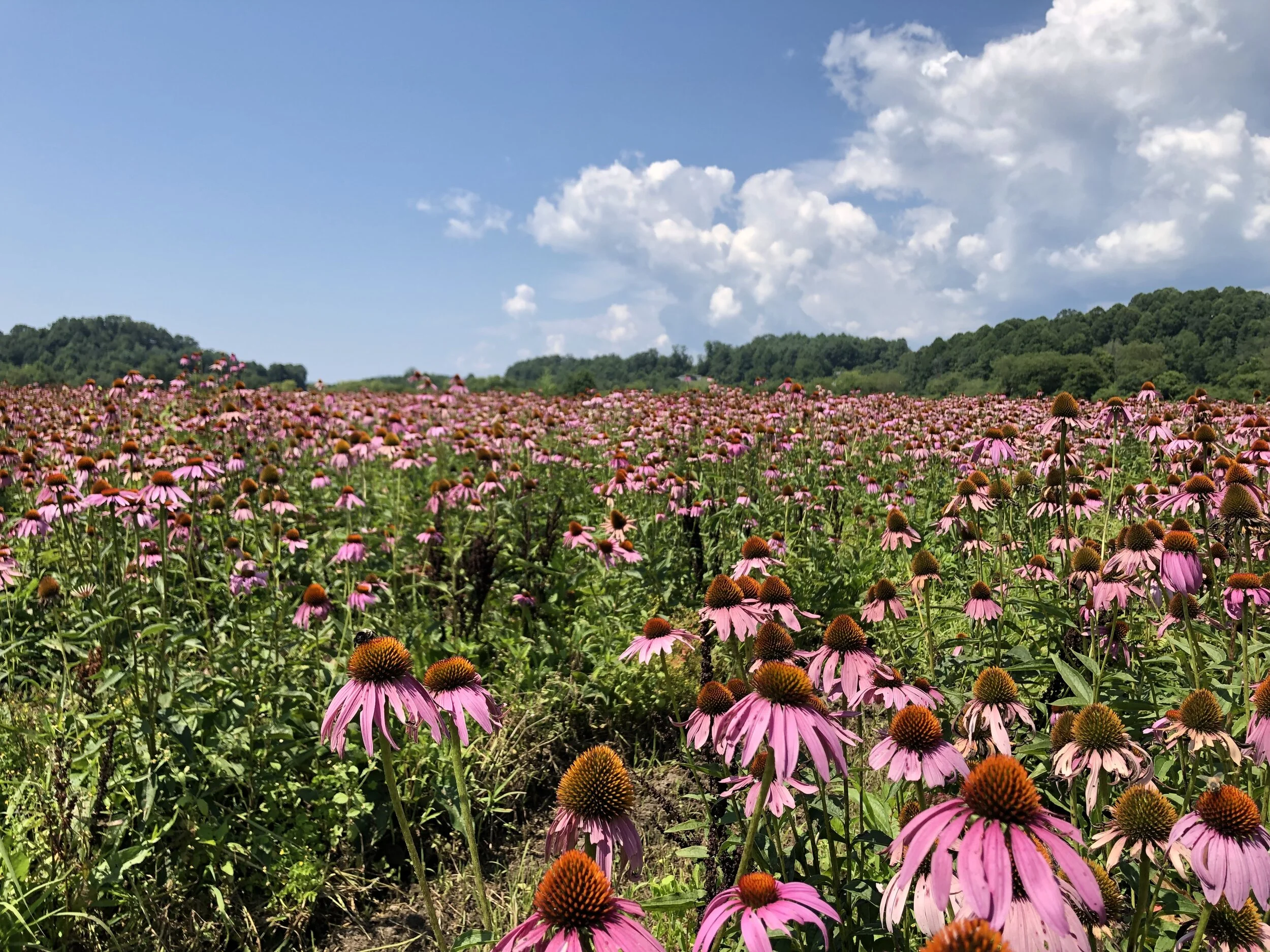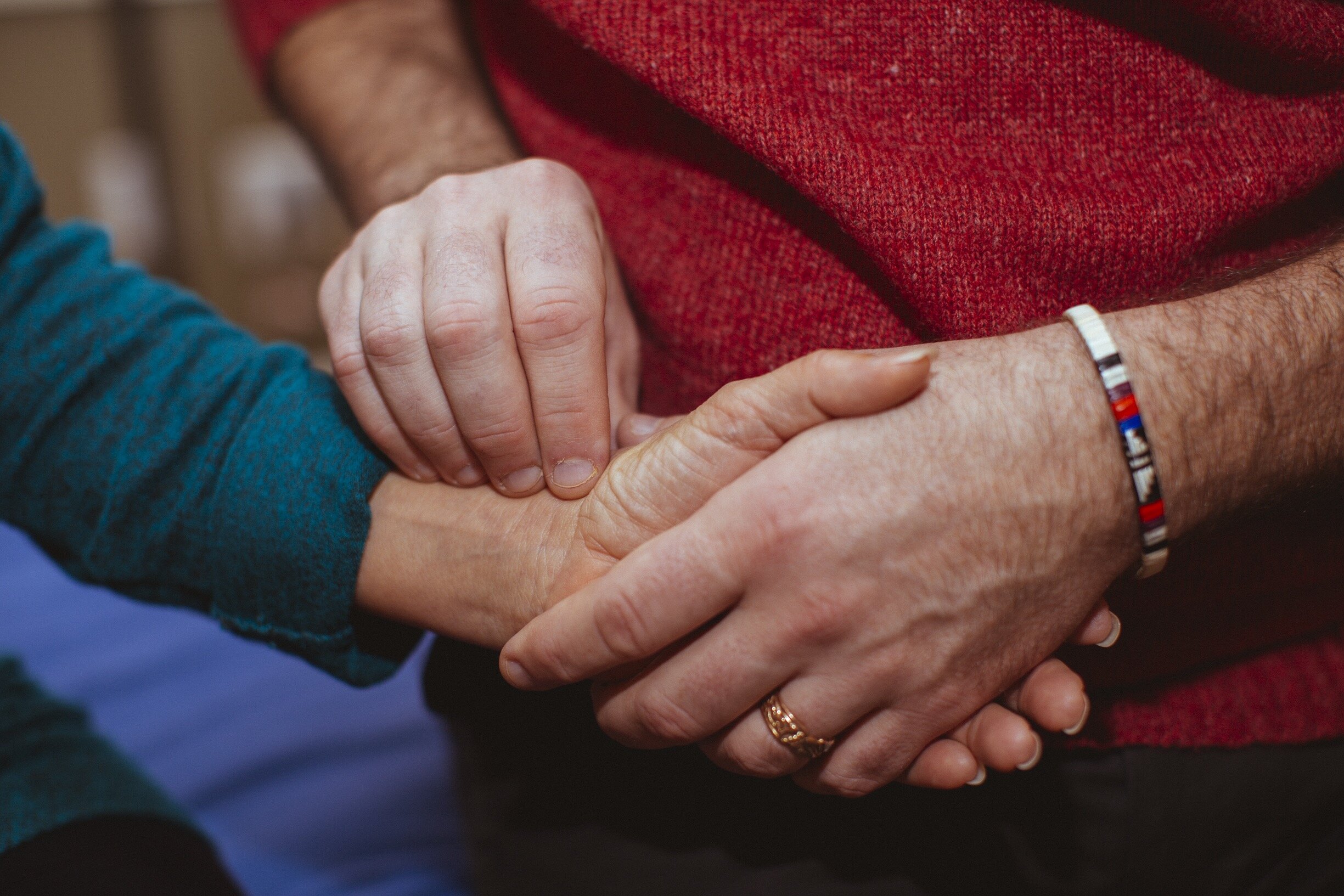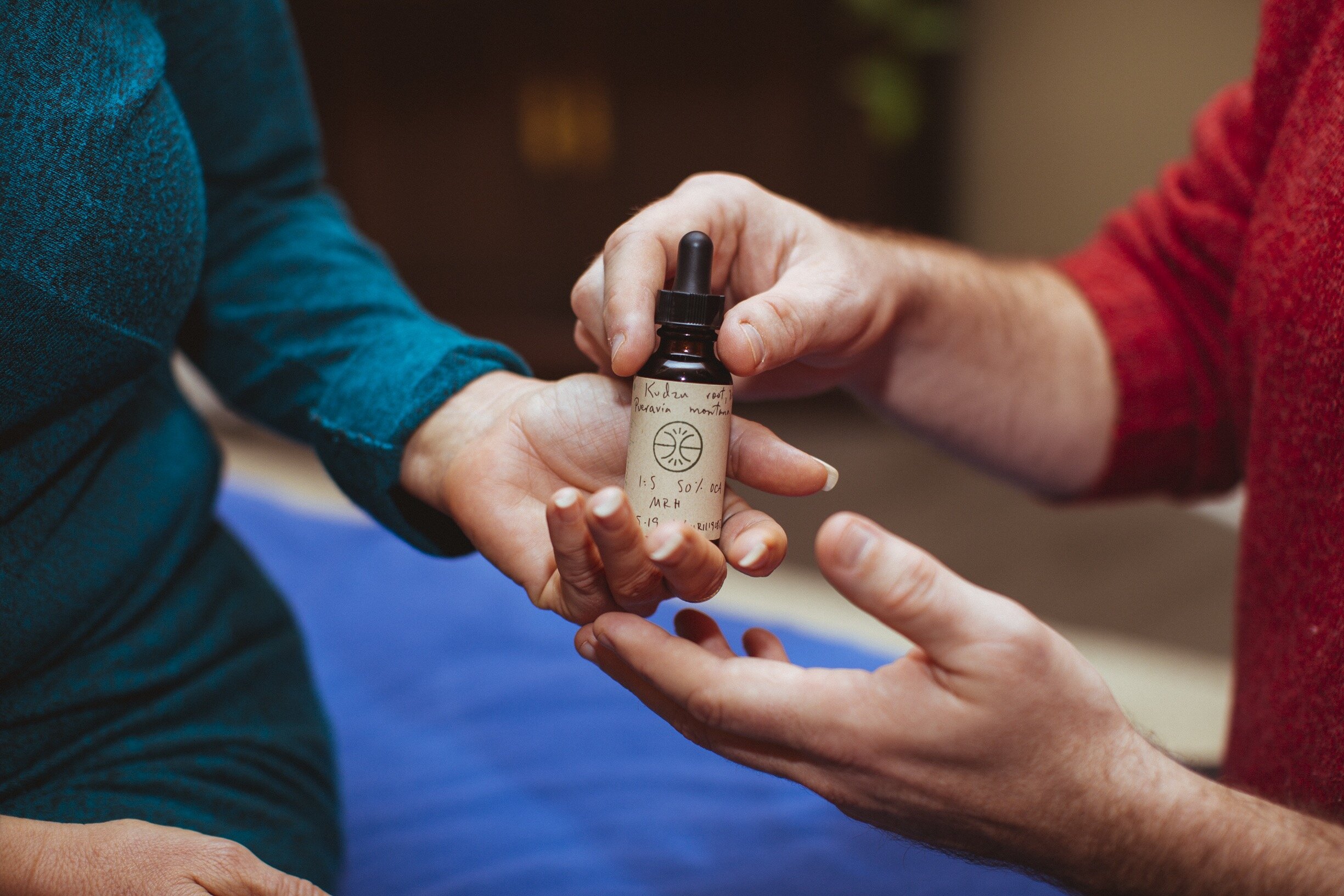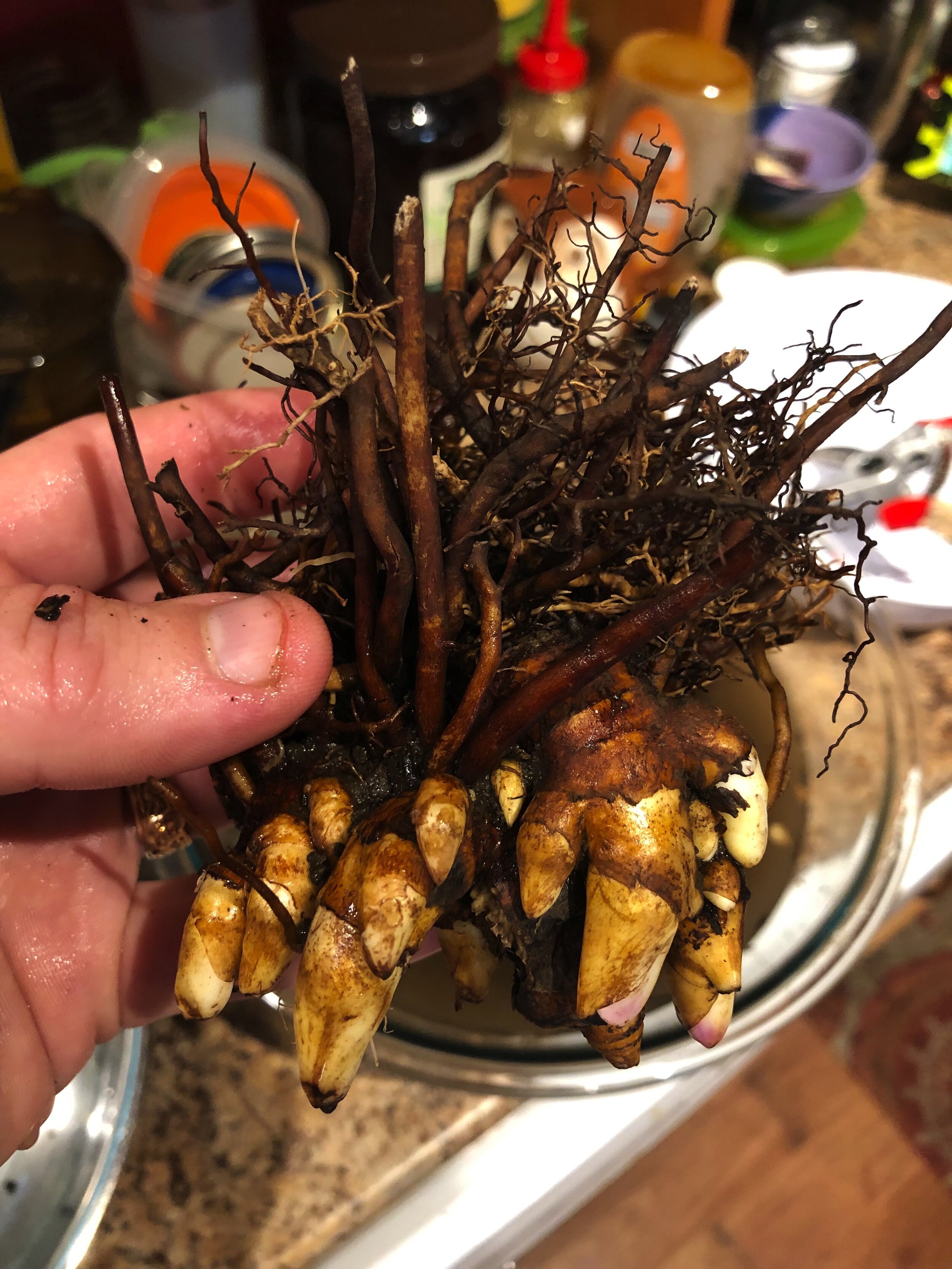Copy of Craniosacral Specialist in Asheville | Holistic Herbalism
Holistic herbalism is a way of treating people, with remedies and medicines from the Living Earth, designed to balance and empower the wholeness of each client, and according to their individual constitution.
Clinical Herbalism
As of 2024, I am and will continue to be a practicing CH, but I am utilizing my skills in this discipline more for the purpose of recommending dietary and nutritional support for the Hypothalamic Reset Technique™, as well as for the support of my primary focus, which is Elemental CranioSacral Work™. If you are wanting formulations I may still provide these, but am more likely to refer you either to another CH or to a local herbal establishment, such as the Herbiary, the CoOp, or the like.
As a Holistic and Clinical Herbalist, I utilize the aid of our plant friends and allies to help clients get further in touch with their bodies’ processes. Plants, like therapists, are not the true healers, but the facilitators of healing, and in my view it is up to the resources, patience, and desire of the client to put all the curative ingredients of their sessions together for their own healing journey. As my client, your inner unfoldments and processes are entrusted to my care. To this end, compassionate, skillful touch and herbs that are brimming with vitality for you, can be wonderful co-facilitators of these processes. And if herbs alone are your preferred vehicle towards better health, then together we will select the best plant allies for your unfoldments. Who you are, and who your plant friends are, will always be in the forefront of my consideration in your care; we want your personalities to match!
My herbiary has many herbs—Tonic, Acute, and Heroic herbs—for treating conditions in and throughout the body. Cardiovascular, Immunological, Neurological, Lymphatic, Reproductive, Muscular, and more—I have all kinds of herbs for all constitutions. My training and influences are culled from Folk traditions, Traditional Chinese Medicine, and Ayurveda traditions. Almost all of my herbs I make myself: sourced from my garden, organic retailers, or ethically from wild and abundant stands of plants in Western North Carolina. What I don’t make, I ethically source from the Blue Ridge School of Herbal Medicine, or other local and reputable sources. My tinctures invariably include 190 Proof Organic Cane Alcohol. I offer teas, tinctures, tisanes, compresses, linements, Apple Cider Vinegar (ACV) extracts, glycerites, as well as topical applications, some of my own making, including salves, lymphatic oils, and so on.
* Here is an example of how I can often blend herbalism and cranial work: I treated a woman who complained of upper neck pain and discomfort, with occasional headaches and pain around the left eye/orbital area. After doing some minutes of cranial work with only some success, and after noticing much constraint in the side of her neck, down into the clavicles and back around to the upper traps, I decided to call on a couple of herbs to help us. With her permission, I gave her a small dose each of Blue Vervain and Black Cohosh, in tincture form. These herbs are good at dispelling darker emotions—which she admitted were creeping into her life—and freeing the cervical spine and eye area of distress. They are also adept at treating headaches and cranial pressure, though they are not usually the first herbs we think of with headache treatment. In this case, however, the client experienced immediate relief, just as I noticed that the neck and back muscles softened. Her jaw was set free, and my cranial work became far easier to administer. Her reasons for coming were thus successfully addressed!
“Just as the flowers grow from the earth, so the remedy grows in the hands of the physician. The remedy is nothing but a seed that must develop into that which it is destined to be.” ~ Paracelsus
“We have finally started to notice that there is a real curative value in local herbs and remedies. In fact, we are also becoming aware that there are little or no side effects to most natural remedies, and that they are often more effective than Western medicine.” ~ Anne Wilson Schaef
Healing Work
“As an integrative physical therapist myself, I’m always on the lookout for ‘good hands.’ Brian not only has excellent hands but his ability to tap into areas of your body that you didn’t even know exist is amazing! He’s intuitive, compassionate, and truly a gifted healer. Brian is able to go into the depths of your body both physically and emotionally with such ease and gentleness. To say that he’s “just a massage therapist” doesn’t do Brian justice. He’s a treasure to anyone who crosses paths with him and I for one am blessed to be one of those people. Thank you, Brian, for unlocking the barriers within my body so that I can freely live my life’s vision.”




